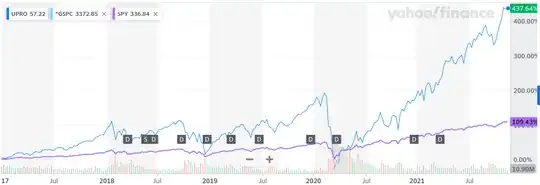I've considered the argument listed in Lifecycle Investing, a book by Ian Ayres and Barry Nalebuff. The argument is that certain investors (who meet certain criteria, such as having a stable income) should lever their stock investments to over 100% when they are young, over time de-lever to 100% stocks, then gradually buy bonds to reach their desired retirement stock/bond ratio. If you are seriously considering this, I recommend reading their book or at minimum watching this Youtube video for a summary.
Currently, I am not levered as I still have student loans, and the value of my loans relative to my investments mean that I already have effective 2:1 leverage. After that, I intend to lever up using deep in the money call options on VOO or VTI.
Why options over margin? Margin has certain risks that options do not. If interest rates go up overnight, IB will likely raise their rates as well, where the implied interest rate of a call option is baked in (though changes to interest rates would change the value of your option, as will the loss of time value if you hold the option close to expiration). Margin also has the maintenance requirements which could lead to a forced sell at the worst time (when your investments go down). Options also have the ability to be traded within IRAs and some 401Ks, while neither supports margin
